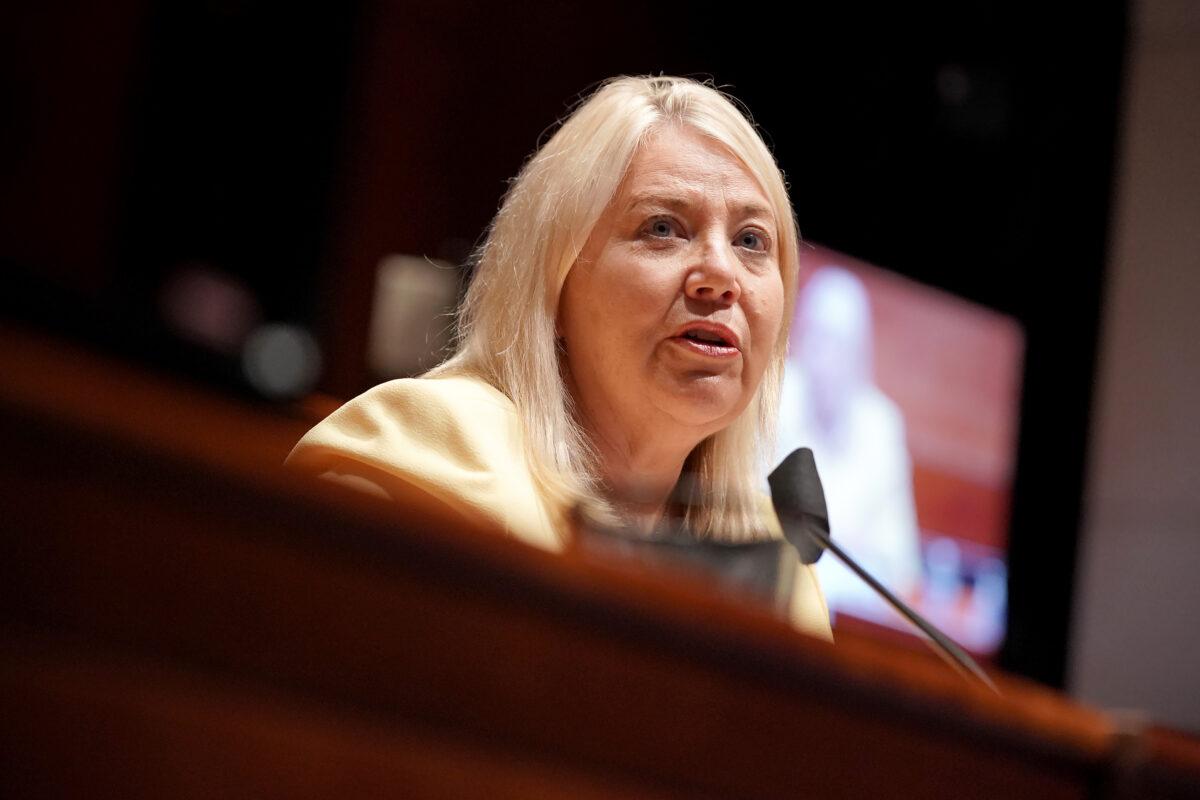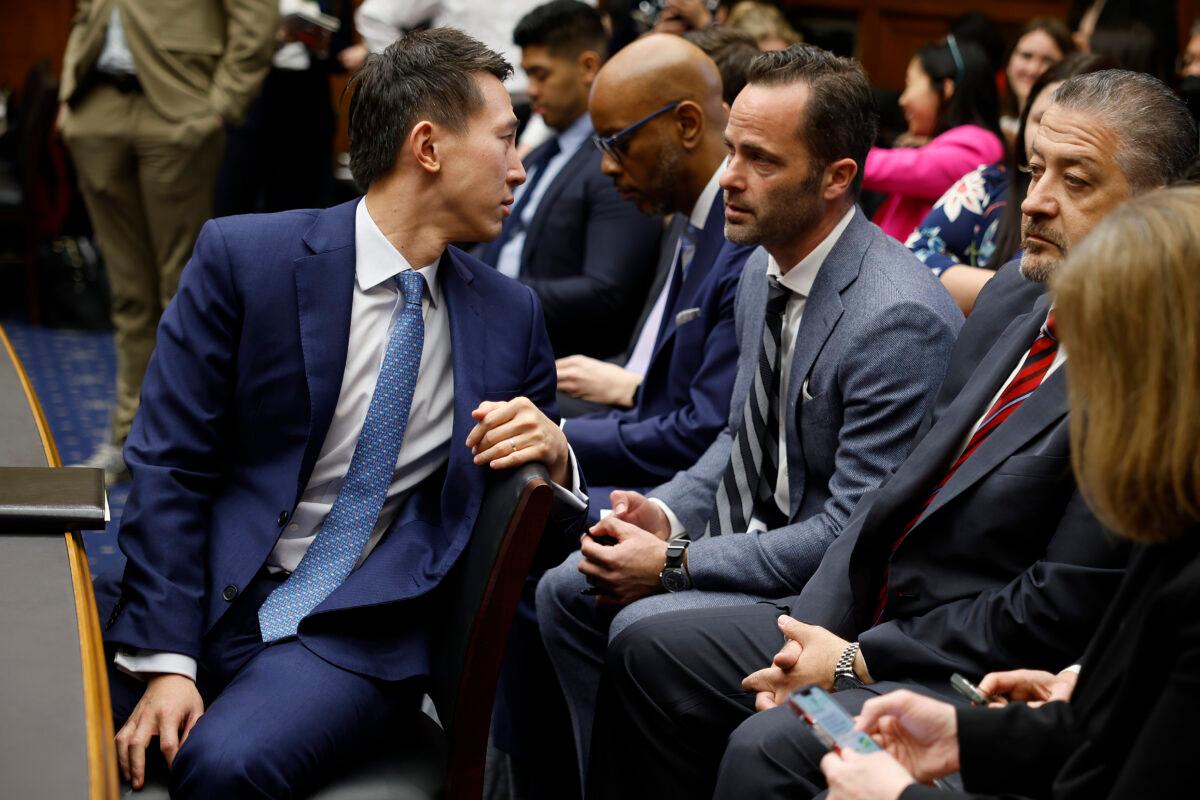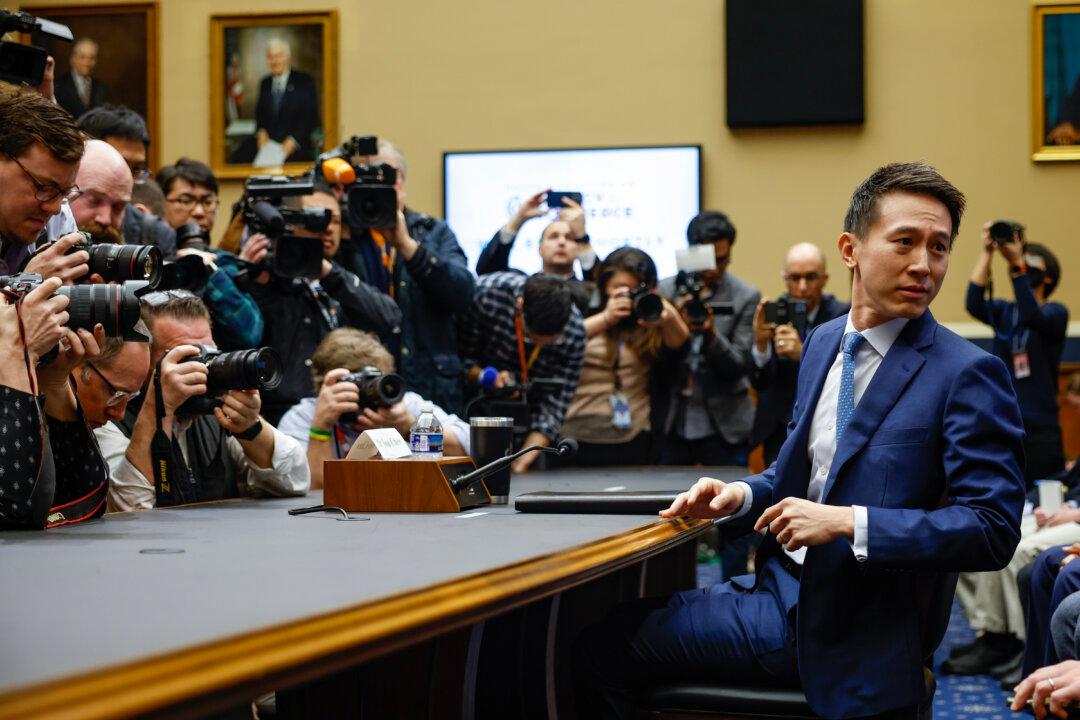The CEO of the viral Chinese-owned app TikTok on March 23 refused to take a position on China’s human rights record, saying that his platform alllows users to “freely express their views on this issue.”
“Congresswoman, if you use our app, and you open it, you will find our users who give all sorts of content on the platform,” TikTok’s Shou Zi Chew told Rep. Debbie Lesko when asked if he agrees that “the Chinese government has persecuted the Uyghur population.”
“That’s not my question,” the Arizona Republican responded. “My question is, do you agree that the Chinese government has persecuted the Uyghur population?”
“It’s really concerning to hear about all accounts of human rights abuse, my role here is to explain what our platform does on this,” answered Chew.
Lesko cut Chew off and accused him of “being pretty evasive.”

“It’s a pretty easy question,” she said, repeating the question a third time, to which Chew again avoided giving a direct answer, saying that “as a platform we allow our users to freely express their views on this issue and any other issue in the United States.”
Sitting behind Chew was TikTok’s vice president and head of public policy for the app’s Americas branch Michael Beckman, who in a December CNN interview repeatedly refused to address Beijing’s treatment of Xinjiang Uyghurs. Chew admitted that Beckerman was one of the team members helping him prepare for the testimony.

TikTok has also faced scrutiny in other countries. On Thursday, the U.K. Parliament announced the decision to block the app from all parliamentary devices, following the footsteps of Belgium, Canada, New Zealand, and the European Union’s executive branch, the European Commission.
At the hearing, Chew appeared to have convinced few that his company can stand free from the regime’s influence.
“You have absolutely tied yourself in knots to avoid criticizing the CCP’s treatment of the Uyghur population,” said Rep. Kelly Armstrong (R-N.D.), the vice chair of the committee later in the hearing.
“If the CCP demanded that ByteDance hand over all of the data that they had on U.S. users in their possession and ByteDance refused, I wonder what would happen. I wonder if Jack Ma might have an opinion on that,” he said, referring to the founder of Chinese e-commerce giant Alibaba. Ma disappeared from public view for months in 2020, not long after he lashed out at China’s regulatory system. This ultimately led to the regime pulling the plug on a $37 billion initial public offering of Ant Group, a fintech giant controlled by Ma. Chinese officials also launched an antitrust probe against Alibaba, which is part of Ant Group, that December.
Lesko later told The Epoch Times she was “appalled” by the TikTok CEO’s answers.
“I asked a simple yes or no question—did he agree that the Chinese government has persecuted the Uyghur population? Yet, he refused to answer my question multiple times,” she said.
“This indicates to me that the CEO, and thus TikTok, are influenced by the Chinese government, and I will continue to hold TikTok accountable for the security threat the app poses to our kids and our nation.”





